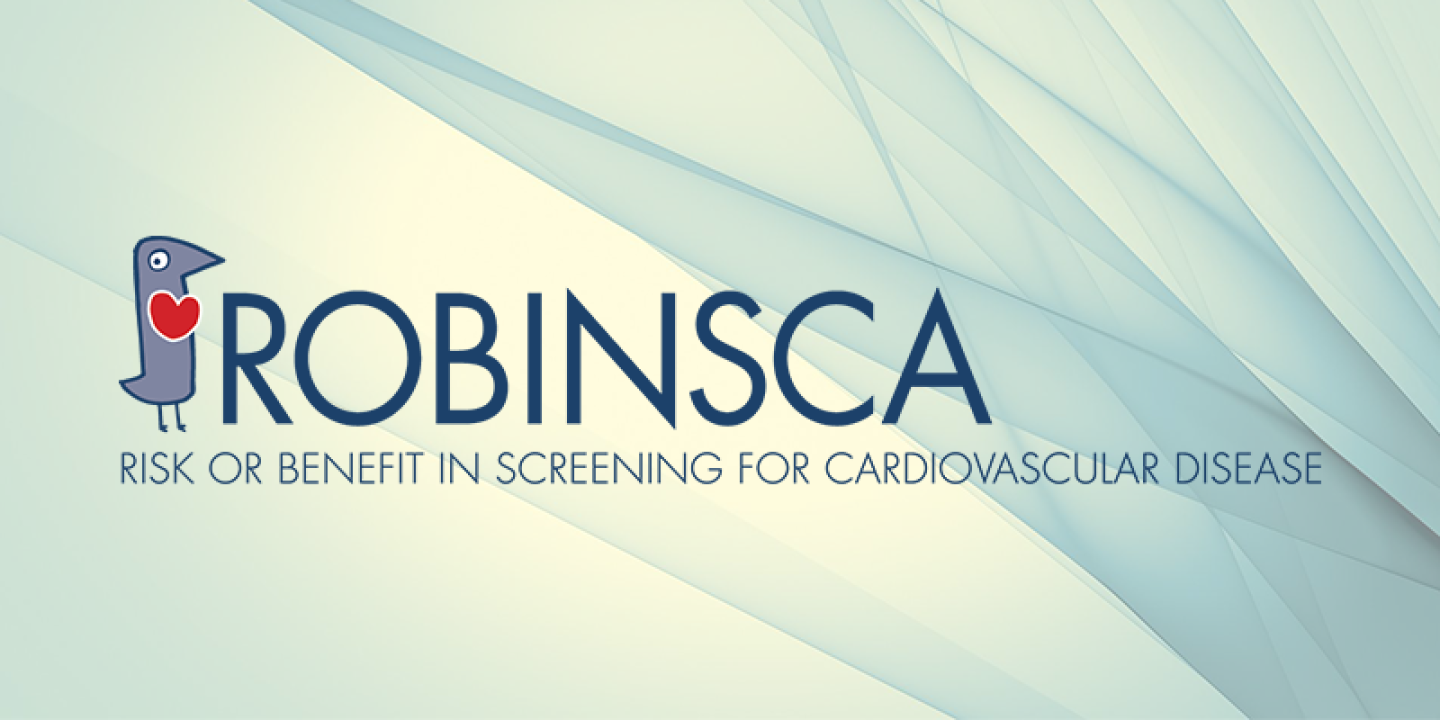Cardiovascular diseases are the primary cause of morbidity and mortality in Europe. Early detection (screening) and treatment for cardiovascular diseases in large groups of people without symptoms (general population) might have the opportunity to reduce cardiovascular-related morbidity and mortality. However, evidence is lacking whether the benefits of screening (e.g. reduced morbidity and mortality) justify the potential harms (e.g. unnecessary treatment, costs).
The ROBINSCA (Risk Or Benefit IN Screening for Cardiovascular disease) is the only large-scale population-based randomized controlled trial that investigates the cost-effectiveness of screening for cardiovascular diseases. About 39,000 participants will be randomized to either the control arm (no screening), intervention arm A (risk calculation by means of well-known risk factors) or intervention group B (risk calculation by means of coronary artery calcium scoring (CT scan)). After five years, these groups will be compared regarding differences in cardiovascular-related morbidity and mortality.
Based on over 15 years of experience with preventative cancer screening projects, RADventure has built the software to manage the logistic flow of this research program. The ROBINSCA-system connects to the population registry in The Netherlands to obtain and synchronize data. It manages the status of almost 400,000 initial individuals through invitations and risk assessments, study enrollment, randomization, planning, invitation management and the data collection from laboratories and scan centers. It provides extensive functionality to conduct complex sample investigations related to individual milestones and provides multiple modalities to communicate with participants. The system provides intuitive two-way interfaces for anonymized statistical processing.
Beginning of March 2015, the first 5,196 participants were randomized and enrolled in the study.
The RADventure Group is specializing in supporting and managing preventative screening programs and established several ICT systems for both national and international screening programs since the year 2000.
